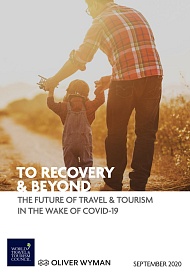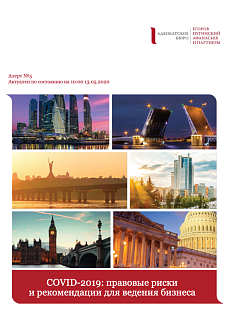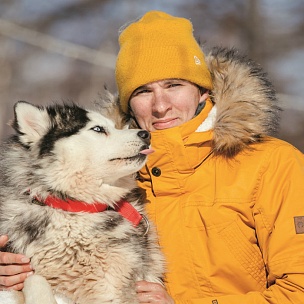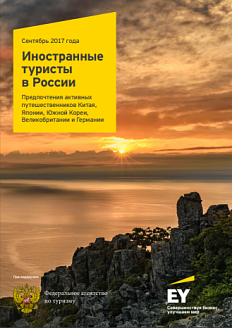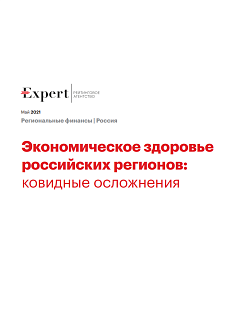This important report published in collaboration with Oliver Wyman explores the impact and implications of COVID-19 on the Travel & Tourism sector through a data-driven examination of four interlinked trends, putting forward recommendations that will support the sector now and build its resilience into the future.
The report identifies the trends reshaping the Travel & Tourism sector in the wake of COVID-19 and outlines how these trends manifest for key stakeholders, namely, travellers, businesses, the workforce, and local communities. On the basis of the trends and their implications for the sector, the report proposes several policy recommendations for governments and destinations to support the restart and recovery of Travel & Tourism. Through this analysis, WTTC and Oliver Wyman hope to further enable informed decision-making among both public and private stakeholders as they navigate the impacts of COVID-19 in the short to mid-term. By raising awareness among key stakeholders, this report aims to promote an earlier recovery within Travel & Tourism, whilst enhancing resilience for the future.
The Roscongress Foundation presents the salient points of the publication accompanied by fragments of broadcasts of relevant panel discussions from the business programme of international events held by the Roscongress Foundation.
The world has and continues to suffer sizeable losses and setbacks due to COVID-19. Not least among those setbacks is the shock to the Travel & Tourism sector. As 90% of the global population adjusted to life under travel restrictions and others stayed home in fear of the virus itself, the sector came to a near-total standstill. Yet, Travel & Tourism leaders have remained strong and steadfast in the face of adversity.
Amid the current socio-economic context and the ever-evolving demand landscape, businesses and destinations will require significant support from governments to turn current obstacles into opportunities for recovery. Governments have already taken some actions to mitigate the impact of COVID-19 on the Travel & Tourism sector, including easing travel restrictions, supporting with liquidity and fiscal measures, protecting workers, introducing health protocols with the private sector, promoting tourism, as well as investing and encouraging innovation.
· Japan will spend JPY 3.6 billion to enhance information to travellers and promote tourism destinations
· Norway has reduced the VAT rate for travellers across the sector from 12% to 8%
· France implemented one of the most generous furlough schemes costing €26bn and paying 70% of employee salaries up to €6,927 gross per month
· UK, which reduced its VAT from 20% to 5% for hospitality and created a £25,000 grant scheme for businesses in the retail, hospitality, tourism, and leisure sectors that occupy rental properties as sole tenants.
· Iceland is offering domestic travel vouchers and created a domestic promotional campaign, one that will likely be escalated internationally.
Still governments can and must do more. In effect, governments have the opportunity to recognise the importance of Travel & Tourism as a driver of job creation and growth, and a mechanism to further equality, reduce poverty and enhance inclusivity in society. The sector now needs the right assistance to bring back the millions of jobs and people whose livelihoods have been impacted.
This important report published in collaboration with Oliver Wyman explores the impact and implications of COVID-19 on the Travel & Tourism sector through a data-driven examination of four interlinked trends, putting forward recommendations that will support the sector now and build its resilience into the future.
Demand Evolution: Traveller preferences and behaviours have shifted toward the familiar, predictable, and trusted. Domestic vacations, extensive planning, and the outdoors will reign in the short-term, with tourism businesses and destinations already adapting.

Health & Hygiene: Health, safety and trust are paramount in this new era. Personal experiences, the fear of being stuck in another country, and concerns for distancing will guide consumer behaviour in the short- to mid-term. Businesses will have to collaborate even more closely with their extended value chains to ensure readiness.

Innovation & Digitisation: COVID-19 is proving to be an unexpected catalyst in the Travel & Tourism sectors quest for innovation and the integration of new technologies. Amid stay-at-home orders, digital adoption and consumption are on the rise, with consumers now expecting contactless technologies, among others, as a basic prerequisite for a safe and seamless travel experience.

Sustainability: From widespread unemployment and anti-racism movements to the restoration of natural habitats, the world has been reinvigorated to tackle social, environmental, and institutional sustainability. In particular, heightened public awareness of wildlife markets and poaching has boosted advocacy for wildlife protection.

While the road ahead may appear uncertain; we anticipate that the challenges along the way, can and will be converted into opportunities by the Travel & Tourism sector. The sector will pivot, stretch, and adapt and ultimately return stronger.
Video: https://roscongress.org/sessions/spief-2019-invest-sessiya/search/#00:57:21.663
For more information, please see the StayHomeEconomy special section of the Roscongress information and analytical system, and Culture, and Tourism.


